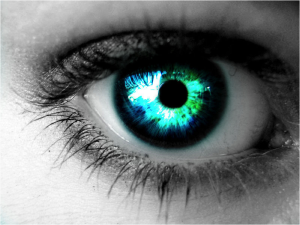Children’s Eye Health & Safety Month
Children’s Eye Health & Safety Month/Back to School Eye Health
It’s that time of year again to start packing the lunchboxes and waiting in car lines: BACK TO SCHOOL!
Preschooler. Between the ages of 3 and 3½, a child’s vision and eye alignment should be assessed by a pediatrician, family doctor, ophthalmologist, optometrist, orthoptist or person trained in vision assessment of preschool children.
School age. Upon entering school, or whenever a problem is suspected, children’s eyes should be screened for visual acuity and alignment by a pediatrician, family doctor, ophthalmologist, optometrist, orthoptist or person trained in vision assessment of school-aged children, such as a school nurse. Nearsightedness (myopia) is the most common refractive error in this age group and can be corrected with eyeglasses. If an alignment problem or other eye health issues is suspected, the child should have a comprehensive exam by an Eye M.D.
Summer Safety Tips
Summer’s in full swing! Be safe and protect your eyes while you are out and about in the sun. The Rand Eye Institute wants to assure everyone is taking proper care of their eyes!
View Our Summer Eye Safety Tips:
Celebrating our Seniors
The Rand Eye Institute continues the celebration of Senior Independence Month with the anecdotes of a member of the Rand Eye Institute’s Centennial Club. The video below provides some Personal Tips on living a prosperous and fulfilling life. Don’t let a number stop you from the lifestyle you want.
So True or So False?
 As a child, your mom most likely nagged you about straining your eyes. Myths about eyesight have been ongoing for centuries. But are these myths true, or are they really just myths? Let’s take a look!
As a child, your mom most likely nagged you about straining your eyes. Myths about eyesight have been ongoing for centuries. But are these myths true, or are they really just myths? Let’s take a look!
Looking at a computer screen for too long can damage your eyes. FALSE
Excessive computer use can cause eye fatigue or discomfort. The computer screens do not cause the discomfort, and the radiation levels are below levels that can cause damage to the eyes. It can cause eyestrain.
Eating carrots will improve your vision. TRUE
Carrots contain Vitamin A, which is essential for eyesight, but only a small amount is necessary.
Reading in the dark can damage your eyes. FALSE
It can only make the eyes tired.
Using improper glasses can damage your eyes. FALSE
Contacts or glasses are necessary to improve eyesight, but not using glasses or contacts will not further damage the eyes.
Swimming in a pool with your eyes open can damage your vision. FALSE
The chlorine from the water can cause irritation and burning of the eyes. It is not dangerous, but uncomfortable. Wearing goggles is the way to go.
Swimming in the ocean with your eyes open can damage the eye if contact is made with dangerous substances like man o’ war tentacles. FACT
Celebrating 4th of July – Independence Day
Honoring our Nation’s independence.
Wishing everyone a safe and happy Independence Day!
God Bless America
Keeping Your Vision Safe During the 4th of July
As we all know fireworks are fun and exciting to watch, but did you know that fireworks injure over 9,000 people each year? Of the 9,000 plus people that are injured, 47% of those people are bystanders. The safest way to enjoy fireworks for this upcoming 4th of July is to remain at least 500 ft. away from where the fireworks are being lit. If you or someone else are setting off fireworks at home or in the street, you should follow these steps:
- Make sure the person lighting the fireworks has protective eyewear.
- Make sure they never try to relight a “dud” firework.
- Make sure only one firework is being lit a time, never attempt to light more than one.
- Never aim a firework at a person, pet, vehicle, house, or any structure or something flammable.
- Always keep a supply of water near by at all times as a safety precaution.
- When storing fireworks, keep them in a cool, dry and safe place, away from children and pets.
- Lastly, one should leave the area where the fireworks are being shot off from, unless it is a trained professional, in which case one should remain at least 500 ft. away.
In the event of a fireworks eye injury, one should: “Get medical attention right away”!
Here is the list of things to avoid:
- Do not rub your eyes
- Do not rinse your eyes
- Do not apply pressure
- Do not apply ointments Do not remove an object from your eye (if one gets stuck there)
- Lastly, do not take blood thinning pain drugs, such as aspirin or ibuprofen.
The fireworks that cause the most injuries are Firecrackers (1200 injuries), Sparklers (600 injuries), and Bottle Rockets (600 injuries). While fireworks are not banned in every state, in order to enjoy fireworks while staying safe this 4th of July, leave the lighting and setting up to the professionals.
Celebrating Senior Independence Month
 July is recognized by The American Academy of Ophthalmology as “Celebrate Senior Independence Month.” As we all celebrate our independence on July 4, we should appreciate the importance of independence to our senior population. The ability to live, and enjoy life independently is taken for granted by many, but becomes a source of increasing concern in an aging population dealing with various maladies, infirmities, and incapacities.
July is recognized by The American Academy of Ophthalmology as “Celebrate Senior Independence Month.” As we all celebrate our independence on July 4, we should appreciate the importance of independence to our senior population. The ability to live, and enjoy life independently is taken for granted by many, but becomes a source of increasing concern in an aging population dealing with various maladies, infirmities, and incapacities.
As Ophthalmologists, we have many patients for whom independent living and functioning becomes more difficult due to vision problems. Thankfully, many of these problems can be avoided, or the effects minimized. Modern treatment of cataracts, glaucoma, macular degeneration, and other retinal diseases have revolutionized our field, and allowed millions of our seniors to continue to function at the highest levels well into their 80’s, 90’s and beyond.
Proper eye care requires regular examinations to detect early disease, before symptoms have even begun. This is especially true with glaucoma and macular degeneration where significant damage can occur before a patient notices a change in vision.
In addition to regular exams, seniors should maintain a healthy lifestyle with proper diet and exercise, avoid smoking, and wear sunglasses while outdoors in our bright Florida sunshine. Wearing proper eye protection is important when playing certain sports or when doing certain household or gardening chores, and especially when working with noxious household chemicals.
If seniors practice proper preventative eye care, and receive regular examinations and timely treatment, they are likely to maintain excellent vision, a crucial ingredient to living and functioning independently.
Keep Your Eyes Young
No one wants to wake up one morning to find wrinkles or bags around their eyes when looking in the mirror. Signs of aging catch most people off guard and before they know it, it’s too late. While you’re attempting to keep your skin looking fresh and radiant with creams and treatments, why not keep your eyes looking young also?
The skin closest to the eye is very sensitive and can easily be affected by one’s lifestyle. Collagen is the protein that maintains the skins firmness and keeps it plump. Cortisol, a hormone released from stress, creates loss of collagen, and the skin in turn thins out. Some signs of aging include crow’s feet, crepe-y eyelids, and dark circles and there are several ways to prevent these changes. The key to keeping the wrinkles and circles away is to follow proper defense mechanisms for the eyes.

• Get at least 8 hours of sleep every night
• Be gentle when applying and removing makeup
• Wear sunglasses to keep you from squinting
• De-stress and find time to relax
• Use hydrating moisturizer with antioxidants
Happy Father’s Day 2014
The Rand Eye Institute would like to take this time and say “Thank You” to all the Fathers out there. For all the time, work, patience, effort, listening, love, care and everything else that you put into being a Father. So once again, “Thank You” and HAPPY FATHER’S DAY!!!
WHY the Color of Your Eyes…
Did you know that only one in five Caucasian adults have blue eyes in the U.S.? However, most people are born blue-eyed. The irises will change colors from blue to brown or hazel during a child’s infancy.
Do you know why? This occurs because there is a certain amount of melanin when a child is born, but the changing melanin levels after birth is what affects the color transition. Melanin is a pigment, the more you have in your eyes, skin and hair, the darker they will be, causing them to reflect more sunlight.
 Small amounts of melanin=eyes appear blue
Small amounts of melanin=eyes appear blue
Medium amount of melanin=eyes turn green or hazel
Large amount of melanin=eyes turn brown




